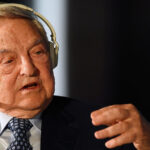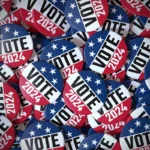In the aftermath of the October 7th attacks in Israel, Ivy League universities have come under intense scrutiny due to a surge in antisemitic demonstrations on their campuses. The backlash has been significant, leading to public outcry, resignations of high-ranking administrators, and questions about the future of these prestigious institutions. A growing number of wealthy individuals and organizations have spoken out against the rise in antisemitism, raising concerns about whether this will impact the reputation and application numbers at Ivy League schools. Concurrently, other private universities are seeing an increase in applications, potentially signaling a shift in student and parent preferences.
The Rise of Antisemitic Demonstrations
The recent spike in antisemitic incidents on Ivy League campuses has been closely linked to the global reaction to the Israel-Hamas conflict that escalated on October 7th. Pro-Palestinian rallies and demonstrations have taken place at various Ivy League institutions, some of which have been accused of crossing the line into antisemitism. These events have included inflammatory rhetoric, vandalism, and verbal harassment targeting Jewish students and faculty. The administration’s perceived failure to adequately address these issues has drawn sharp criticism from the public, alumni, and donors.
At Harvard University, for example, a letter circulated by a coalition of student organizations blamed Israel for the violence, sparking outrage. Critics argued that the letter was insensitive to the victims of the attacks and fostered an environment of hostility towards Jewish students. Similar incidents at other Ivy League schools, such as Columbia University and the University of Pennsylvania, have also been reported. These events have raised concerns about the safety and well-being of Jewish students on these campuses.
Decline in Applications?
The controversy surrounding these demonstrations and the perceived mishandling by university administrations have raised questions about whether Ivy League schools are experiencing a decline in applications. Preliminary data suggests that some Ivy League institutions may indeed be facing a downturn in interest from prospective students. While official application numbers for the next admissions cycle have yet to be released, early indications from college counselors and admissions consultants suggest that families are increasingly wary of sending their children to institutions perceived as unsafe or hostile environments for Jewish students.
According to some reports, applications to certain Ivy League schools have dropped by as much as 10% in the wake of the October 7th attacks. This decline is significant, given the traditionally high demand for spots at these prestigious institutions. The decrease in applications could be attributed to concerns about campus safety, the administration’s response to antisemitism, and the broader social climate at these universities.
Private Universities Gaining Ground
As Ivy League universities grapple with these challenges, other private universities are reportedly seeing an uptick in applications. Schools like the University of Chicago, Duke University, and Vanderbilt University have been highlighted as institutions that are attracting more interest from prospective students. These universities, which have taken a more proactive stance against antisemitism or have not been as prominently associated with these issues, are perceived as safer and more welcoming environments.
The University of Chicago, in particular, has been praised for its strong stance on free speech and its efforts to maintain a balanced and respectful dialogue on contentious issues. This reputation, coupled with its academic rigor, has made it an increasingly attractive option for students who might have otherwise targeted Ivy League schools. Similarly, Duke University and Vanderbilt University have reported increases in early applications, reflecting a possible shift in student preferences away from traditional Ivy League institutions.
Wealthy Individuals Speaking Out
The rise in antisemitism on Ivy League campuses has also prompted a vocal response from several high-profile individuals and organizations. Prominent donors, including billionaire investor Bill Ackman and hedge fund manager Marc Rowan, have publicly condemned the incidents and called for stronger actions from university administrations. Ackman, a Harvard alumnus, has been particularly critical of the university’s response to the antisemitic incidents, leading a group of influential alumni in demanding accountability and change.
These wealthy individuals have not only spoken out but have also indicated that they may reconsider their financial support for institutions that fail to address antisemitism effectively. Such statements could have significant implications for the fundraising efforts of these universities, which rely heavily on donations from alumni and other benefactors.
Administrative Resignations
In response to the growing backlash, several Ivy League administrators have resigned or been pressured to step down. At the University of Pennsylvania, for instance, the resignation of a high-ranking administrator followed intense criticism over the university’s handling of antisemitic incidents on campus. These resignations underscore the severity of the situation and the challenges that Ivy League schools face in restoring trust and ensuring the safety of all students.
The resignations also highlight the broader issue of leadership in higher education, particularly at a time when universities are grappling with complex social and political issues. The departure of key administrators may lead to further instability and uncertainty at these institutions, potentially exacerbating the challenges they face.
The surge in antisemitic demonstrations at Ivy League universities has sparked a significant backlash, with potential long-term implications for these institutions. As applications to some Ivy League schools appear to decline, other private universities are seeing increased interest, suggesting a possible shift in the landscape of higher education. The public outcry, led by wealthy donors and alumni, combined with the resignations of key administrators, indicates that the Ivy League’s reputation and influence may be at a critical juncture. As these universities navigate these challenges, they will need to address the underlying issues of campus safety, free speech, and inclusivity to restore confidence among students, parents, and supporters.
















